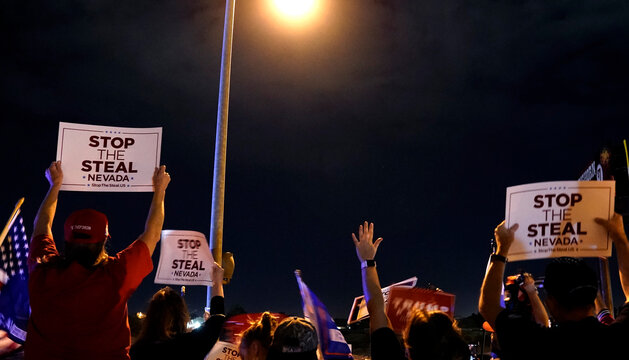Voters in Ohio have the right to vote free from intimidation under federal and state law.1Federal law broadly prohibits intimidation, threats, or coercion throughout every stage of the election process;2more information on the federal protections that apply to all states can be found here. In addition, the following actions are specifically prohibited by Ohio law:
- Obstructing access to a polling location.3
- Obstructing, intimidating, or interfering with voting at a polling location.4
- Participating in a riot, violence, or disorder in and about a polling location.5
- Attempting by intimidation, coercion, or other unlawful means to induce a voter to vote or refrain from voting, or to vote or refrain from voting for a particular candidate, question, or issue.6
- Loitering in or about a polling place during the casting and counting of ballots so as to hinder, delay, or interfere with the conduct of an election.7
- Soliciting or in any manner attempting to influence any voter in casting their ballot.8
- Engaging in any kind of election campaigning within 100 feet of a polling place, and if the line for voting extends beyond the 100-foot buffer, within 10 feet of any voter waiting in the line for voting.9
- Unduly delaying or hindering a voter from attempting to vote or voting.10
- Recklessly destroying any property used to conduct elections or removing materials that help a voter cast their ballot.11
The below addresses the laws that serve as guardrails against specific threats of intimidation.
Endnotes
-
1
See, e.g., 18 U.S.C. §§ 241, 594; 52 U.S.C. § 10101(b); Ohio Rev. Code Ann. §§ 3501.35, 3501.90, 3599.01, 3599.24, 3599.26. -
2
See U.S. Department of Justice, Voting Rights Fact Sheet (Sept. 2024), https://www.justice.gov/crt/media/1366636/dl (summarizing federal laws that protect against intimidation).
-
3
Ohio Rev. Code Ann. §§ 3501.90(A)(1)(A), 3501.35(A)(2). -
4
Ohio Rev. Code Ann. § 3501.90(A)(1)(A). -
5
Ohio Rev. Code Ann. § 3501.90(A)(1)(A). -
6
Ohio Rev. Code Ann. § 3599.01(2). -
7
Ohio Rev. Code Ann. § 3599.24(5). -
8
Ohio Rev. Code Ann. § 3501.35(A)(5). -
9
Ohio Rev. Code Ann. § 3501.35(A)(1). -
10
Ohio Rev. Code Ann. § 3599.26. -
11
Ohio Rev. Code Ann. § 3599.24(2), (6).
